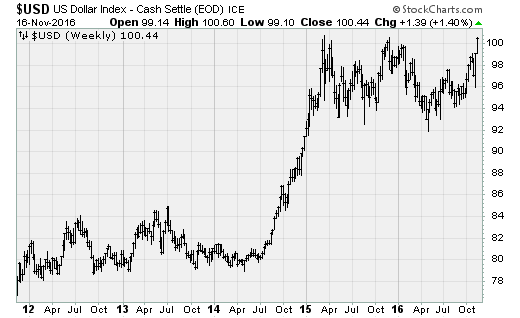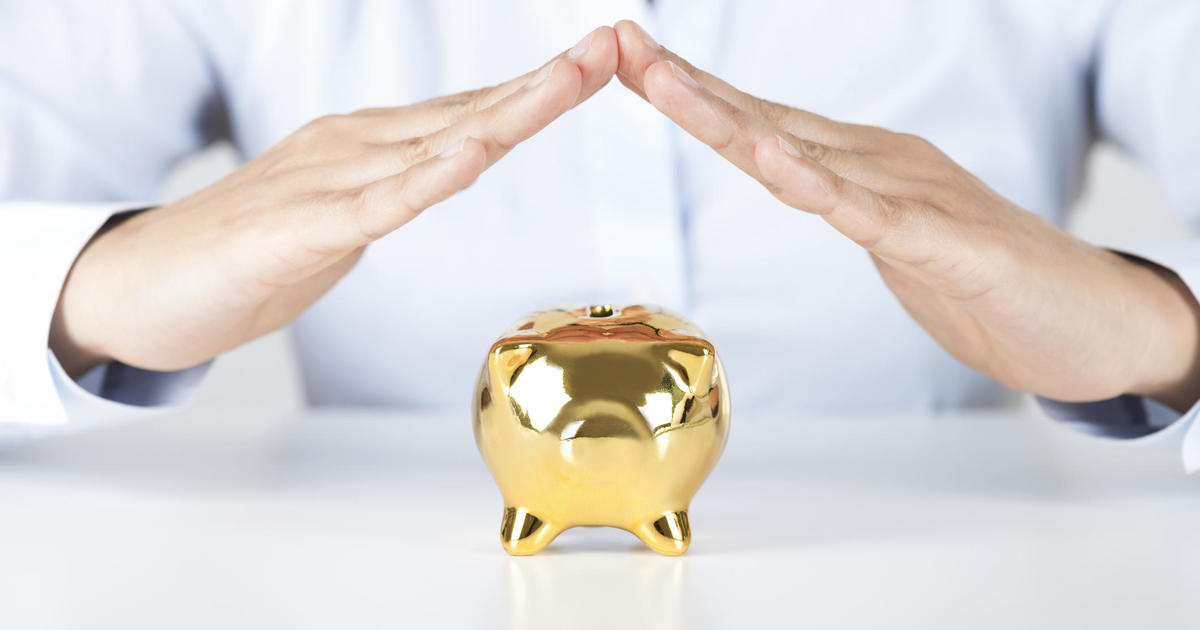How the dollar's post-Trump jump helps and hurts
One of the strongest Wall Street reactions to President-elect Donald Trump’s surprise victory last week has been near-vertical surge in the U.S. dollar. The greenback climbed for eight consecutive sessions through Wednesday, a gain of more than 3 percent to take the currency back to two-year highs (chart below).
Many reasons account for the move. It’s a response to the dramatic currency weakness in many emerging market economies, such as China, on fears over Trump’s calls to renegotiate U.S. trade deals. It’s a reflection of rising U.S. economic growth expectations, given Trump’s plans for large tax cuts and increased infrastructure and military spending. And it shows how expectations have risen for higher interest rates, given Trump’s repeated criticism of the Federal Reserve’s aggressive cheap-money stimulus.
Nationalist pride aside, is the dollar’s surge a good thing or a bad thing? Well, it depends.
A stronger dollar is often associated with things like rising economic growth, higher interest rates and increased imports. It should also be a drag on inflation because a more valuable dollar will not only lower the cost of goods and services coming into the country, but it will lower the cost of many key commodities such as crude oil, all else equal.
For the stock market, the magnitude and speed of the dollar’s rise will likely eventually be viewed negatively.
First, remember that the dollar’s 20 percent rise from the summer of 2014 through early 2015 was a big drag on U.S. corporate profitability. Combined with the meltdown in crude oil prices -- due to the OPEC price war against U.S. shale producers -- the dollar’s jump resulted in a two-year-long corporate earnings recession.
Only in the recently completed third quarter, which featured stability in both the dollar and oil, did S&P 500 earnings return to year-over-year growth.
And second, the other side of the dollar’s rise is the weakness in emerging market currencies. Rapid Chinese currency declines resulted in big Wall Street sell-offs in August 2015 and again at the start of this year as traders worried about issues in the Middle Kingdom including capital outflows, rising bad debt and possible inflation pressure.
We could be on the cusp of a repeat: Beijing, which actively manages its currency, on Tuesday dropped the yuan to the lowest level since 2010.
For consumers, the stronger dollar is something of a mixed blessing. Sure, it will act to hold down inflation because imported goods from China will be cheaper and energy prices will be actively depressed. That should allow the Fed to keep a slow pace of rate hikes, which would give the economy the benefit of low short-term interest rates for longer, according to Deutsche Bank economists.
But if a rising greenback results in renewed pressure on corporate earnings growth and emerging market currencies, the result could be nasty stock market volatility and a hit to Americans’ 401(k) values.





